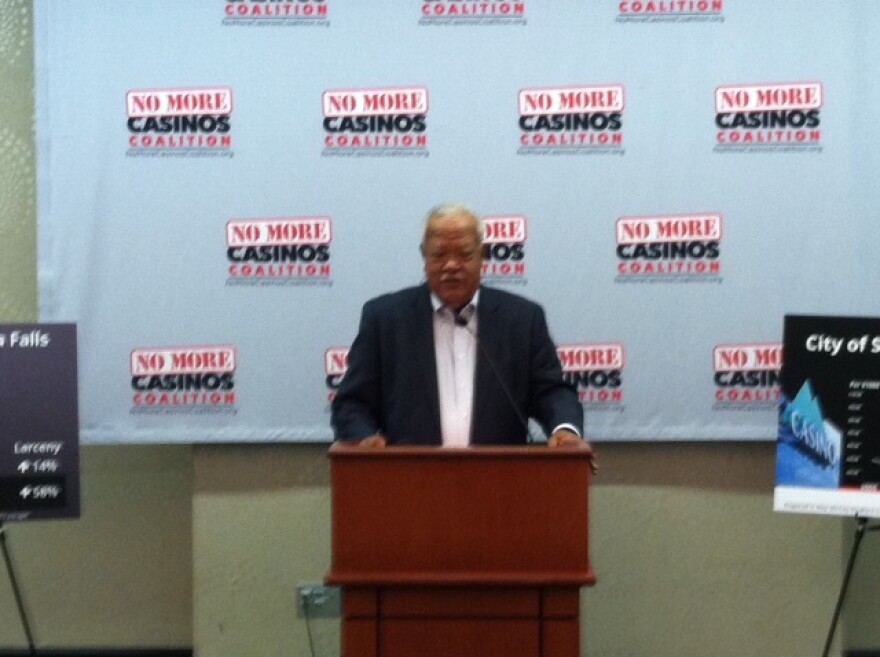The group No More Casinos Coalition has released details of analysis of property tax and crime data released by Freedom of Information Law requests to the cities of Niagara Falls and Salamanca.
Former Rochester Mayor Bill Johnson, speaking for the group, says the initial data show taxes went up 17 percent and 16 percent in Niagara Falls and Salamanca, respectively, from the period before the casinos were built there to 2012.
Certain areas of crime also increased, according to Johnson.
That includes a 22-percent increase in theft-related crimes over the same period.
WXXI tried to reach Niagara Falls mayor Paul Dyster for verification, but he was unavailable.
Gates Town Supervisor Mark Assini, who favors the idea of a casino at Rochester Tech Park in his town, says the issues of higher taxes and crime rates and casinos are unrelated.
He says pressures that force higher taxes or crime in urban areas have nothing to do with a single business, casino or otherwise, going into an urban center.
Johnson says it's clear that Seneca-run casinos aren't a panacea for local problems, and while residents in Henrietta have said "no" to the idea, it's still the subject of talk in other towns, including Greece and Gates, and Irondequoit.
He says any community that is considering a casino should question whether a deal with the Seneca Nation to build would be a benefit for the long term, based on analysis of the data.
Johnson urges residents to bring up the issue with Monroe County lawmakers at their May 13th meeting.
Assini argues a casino would have several benefits: it will bring jobs to region, and if the town of Gates received the same offer that went to Henrietta, residents would no longer have to pay town property taxes, and Gates residents support the proposed location, Rochester Tech Park
Assini points out that the No More Casino Coaltion is funded by Batavia Downs and Finger Lakes Gaming and Racetrack, which don't want competition from Seneca run casinos.


